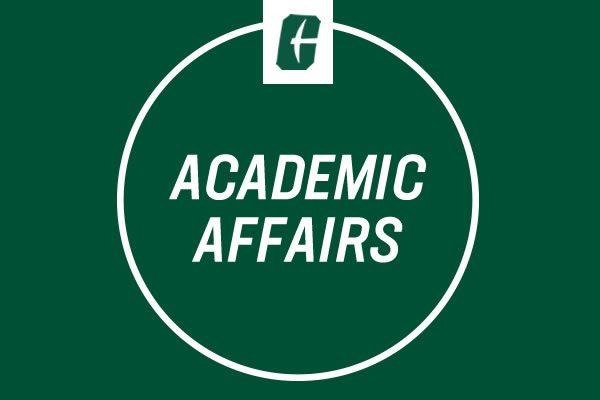Faculty Special Accommodations During Pandemic Period

To: Department Chairs/School Directors
Cc: Deans, Associate/Assistant Deans, Business Managers, Faculty Council President
From: Lori McMahon, Associate Provost for Academic Budget and Personnel
We continue to plan for a Spring 2022 semester with primarily (70% or greater) face-to-face classes. The instructions below assume that in preparing the spring schedule, department chairs have taken into account existing needs for the Americans with Disabilities Act (ADA) and pandemic-related accommodations (remote instruction) and that the need for instructional format changes prior to or during the semester will be minimal. Any such changes needed must be reported to the dean’s office.
Please review the following procedures for equitably evaluating faculty requests for special accommodations during the pandemic period.
Existing Policies and Procedures (Pre-Pandemic)
Keep in mind that existing procedures related to ADA accommodations and Leave requests remain in effect. These can be submitted as they arise.
ADA-related Requests. ADA-specific requests should be submitted to Cindy Edwards in Human Resources (HR) via the Accommodation Request Form. Having a family member with COVID high-risk factors is not a qualifying event for accommodation under the ADA. Only employees are eligible to request an accommodation under the ADA for their own disability. For a family member’s circumstance such a request would need to be addressed as a non-ADA accommodation through Academic Affairs.
Family Medical Leave (FML) or Personal Leave Requests. Requests should be submitted via email to Brenda Nipper in the Office of Academic Affairs.
Short-Term Pandemic-Period Special Accommodations
COVID High Risk Factors: If a faculty member has high-risk factors as defined by the Centers for Disease Control that are supportable through medical documentation from a physician, they should contact Cindy Edwards in HR to submit an ADA Accommodation request first. If a faculty member or a member of their immediate household is immunocompromised or has one or more high-risk factors as defined by the Centers for Disease Control, then they may be eligible for reasonable special accommodation considerations during the pandemic period. The faculty member should discuss possible special accommodation options with their department chair, who may further consult with the dean to determine what accommodations are reasonable. Accommodations should be documented in the department and dean’s office for shared reference. Decisions are based on a faculty member’s attestation only; medical documents for verification should not be requested.
Dependent Care for Infants and Toddlers Not in Daycare/Preschool and Not Living with School-Attending Children: If a faculty member has an infant or toddler living at home who is not in daycare or preschool, and there are no other children in the home who are attending school, then the faculty member is eligible for special accommodation considerations. The faculty member should discuss possible accommodation options with their department chair, who may further consult with the dean to determine what accommodations are reasonable. The dean may further consult with Academic Affairs if needed before communicating a final decision. Accommodations should be documented in the department and dean’s office for shared reference. Decisions are based on a faculty member’s attestation only.
Intermittent Accommodations: Faculty may need to move their classes to remote or hybrid instruction for short-term periods to accommodate needs for quarantine or isolation for students in their classes, their own children whose schools have moved to remote instruction, or their own need for quarantine (see UNC Charlotte Academic Procedure: Faculty Illness). These short-term (two weeks or less) changes in instructional methods can be made at the discretion of the faculty member with sufficient notice and appropriate communication to the students in their classes. Faculty should discuss their short-term request as prior notification to their department chairs and receive approval before contacting students. Only instances of a faculty member’s own quarantine require submission to the Emergency Management portal.
Longer-Term (ADA or Leave) Accommodations
ADA Accommodations: Faculty members who have a qualifying disability that is medically verified by a physician are eligible for reasonable accommodations. ADA eligibility applies only to a faculty member as the employee, not a household member. Having a high-risk or disabled family member is not a qualifying event for accommodation under the ADA. The faculty member should notify their department chair and submit the Accommodation Request Form to Cindy Edwards in Human Resources.
Leave Eligibility: Some situations may require a longer-term absence and should be evaluated for Leave eligibility ordinarily available as existing policy for 9-month faculty who are non-Leave earning. While this is not the default decision for pandemic-period special accommodation, it may need to be considered to ensure instructional continuity for students. Requests must meet University policy criteria defined for FML or Unpaid Personal leave instances.
Paid Leave, one semester — For concerns that meet FML criteria for a faculty member or for care of a household dependent.
Unpaid Personal Leave — For extraordinary unforeseen circumstances that require more than a short period to resolve and do not meet FML criteria.
Living and working out of state — These remain rare exceptions, require additional review and approval, and require more lead time to evaluate.